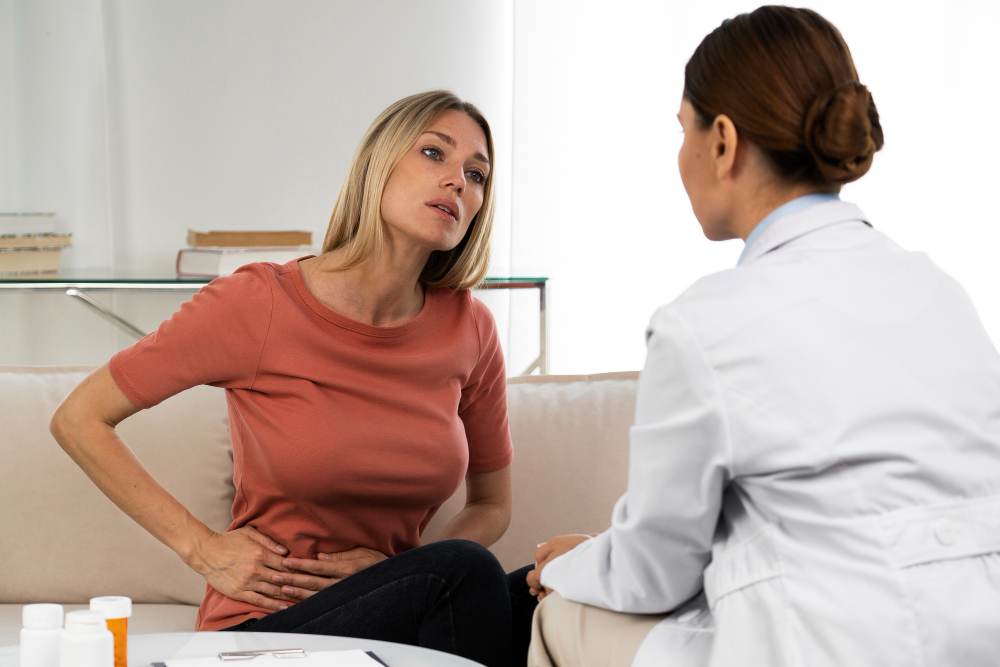- Fast results
- 4,000+ locations
- 4.8 star rating
Need Help? (888) GET LABS



Food poisoning can be attributed to consuming any food contaminated with bacteria, viruses, fungi, parasites, and other toxins. Common signs of food poisoning include stomach cramps, vomiting, diarrhea, and fever – conditions that cause great discomfort for about 12 to 48 hours. While you can rely on prescriptions and over-the-counter medicines to speed up your recovery, you can also take several food poisoning home remedies to relieve discomfort.
Check out our tips to help you feel better during food illness.
Food poisoning often leads to dehydration due to vomiting and rapid digestive relief. It’s essential to replenish the lost fluids and electrolytes in your body. Drinking water, clear broths, or sports drinks can help you stay hydrated and prevent further dehydration. Avoid caffeinated or alcoholic drinks as they can worsen dehydration.
To restore electrolyte balance, you can also consume oral rehydration solutions available at pharmacies. These solutions contain the right amount of salts and sugars to help your body absorb fluids more effectively.
Another effective remedy is following the BRAT diet (Bananas, Rice, Applesauce, and Toast) during recovery. You can soothe your stomach with these bland foods since they are easy to digest. Additionally, they provide essential nutrients to support your body’s healing process.
Bananas have high potassium, which can help replenish electrolytes. Rice and toast are gentle on the stomach, while applesauce provides fiber and vitamins.
Herbs can provide natural relief for food poisoning symptoms. They contain natural substances that counteract the symptoms of food poisoning. Some of the herbal remedies you can try are:
Ginger has anti-inflammatory properties that help soothe upset stomachs and relieve discomfort. You can consume it in several ways, including ginger tea, ginger ale, and ginger capsules.
For centuries, peppermint has been used to ease digestive issues. Taking it can help to reduce nausea and stomach cramps and relax the muscles of the gastrointestinal tract. You can drink peppermint tea or take enteric-coated peppermint capsules.
The calming properties of chamomile tea can help soothe an irritated stomach and reduce inflammation. Additionally, it promotes better sleep, which is crucial for recovery.
Keep in mind that while these remedies can provide relief, it’s still essential to seek medical attention if your symptoms persist or worsen. Plus, make sure to follow through with your doctor’s prescription and seek approval on which drink or food you can eat based on your condition.
Pro tip: Herbal teas can also relieve bloating, whether or not it comes from food poisoning. Learn about other remedies for bloating you can take to manage the condition.
You can ensure speedy healing and recovery with proper rest. If you’ve experienced food poisoning, take a day off to stay in bed to promote tissue repair and let the inflammation subside. Also, you’ll be able to manage the symptoms accordingly, track your fluid intake, and avoid complications with enough sleep and less mobility.
Another great addition to your diet after experiencing food poisoning is probiotics found in foods like yogurt. Probiotics contain gut-friendly bacteria that help maintain your directive tract’s microbial balance.
In cases wherein the food illness is caused by bacterial infection, adding more good bacteria can help eliminate the harmful bacteria. Nonetheless, consult your doctor if you’re unsure about which probiotic food product to include in your meals.
Pro tip: Not all infections may exhibit symptoms of food poisoning. For example, H. pylori can instead cause stomach ulcers. You can order a H. pylori test here with Personalabs. If this is the case, you must consult your doctor and consider an appropriate diet to relieve the sores.

Food poisoning symptoms usually subside within a few days with proper self-care and home remedies. However, there are times when medical attention is required. If you experience any of the following symptoms, you should seek medical attention:
A healthcare professional will evaluate your symptoms, perform necessary tests, and provide appropriate treatment to help you recover.

Preventing food poisoning is always better than applying the remedies mentioned above. Luckily, the steps you need to follow are not complicated and can ensure your safety against contamination. The following are the practical tips to avoid food illness.

If you have food poisoning, you may experience nausea and vomiting, abdominal cramps, diarrhea, fever, and fatigue. Your body will try to push out the harmful substance from the food through vomiting and loose fecal movement. The severity of this depends on the cause of the illness.
You can develop food poisoning from contaminated food or drinks. Such contamination can involve bacteria like Salmonella, Listeria, and E. coli; viruses, such as Rotavirus and Norovirus; parasites like Giardia and Cryptosporidium; toxins, such as botulism and staphylococcus toxin; and other substances that upset the stomach.
Some of the foods and drinks to avoid when you have food illness include alcohol, coffee, fatty foods, spices, dairy products, fruit juices, and high-fiber fruits and vegetables. Also, make sure to avoid highly savory and sweet meals. It’s best to stick with bland foods until you recover.
Dealing with the discomfort of food poisoning can be a challenge if you don’t know what actions to take. On the contrary, following our tips to relieve food poisoning symptoms above can help you speed up your recovery. Of course, if the digestive distress persists, don’t hesitate to seek medical attention. Still, it’s important to note that prevention remains a favorable route when dealing with food poisoning altogether.

© Copyright 2025 Personalabs. All Rights Reserved.